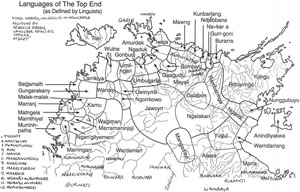Bilingual learning - in the Australian Federal Elections
What are the Liberal Party, the Labor Party and the Greens Party saying about bilingual learning?
Here are the responses about bilingual learning from the three main parties. Read each response, or the lack of one. As of today, only the Greens Party has a policy regarding bilingual education and bilingual learning for this next term of government. The Australian First Nations Political Party has stated it will re-instate bilingual education.
Liberal Party – no response from request for information from Natasha Griggs.
Labor Party – current position unknown, however response to follow up has been received from Senator Trish Crossin
Most Recent:
• Funding grants on a yearly basis to support Indigenous languages
• Report – Inquiry into Indigenous Languages in Communities (http://goo.gl/0JM0gW)
• Draft Australian Curriculum – Languages –Framework for Aboriginal Languages and Torres Strait Islander Languages (http://goo.gl/DovYbI)
Greens Party
Warren H Williams\' comments– standing for NT Senate
The Greens will take action to reverse the funds draining from NT schools and training institutions. We will pursue bilingual education programs that have demonstrated results. Kids learn better in their own language; and research shows bilingual education can achieve better literacy and numeracy outcomes. Learning in language keeps culture strong and supports healthy life in communities.
They say:
We will also dedicate $10 million a year to enhance the teaching and learning of Aboriginal and Torres Strait Islander languages. Australia risks losing Aboriginal and Torres Strait Islander languages without a more concerted effort. The Greens will provide funds on top of current programs for schools to keep Aboriginal and Torres Strait Islander languages alive. Furthermore, there is evidence to suggest the educational outcomes for Aboriginal kids are significantly improved when they can learn in their own language.
The funding will ensure education service providers working in remote communities are supported to become bilingual in an Aboriginal language, that teachers working in Aboriginal communities can receive ongoing mandated training in Aboriginal language concepts and that Aboriginal language courses are made available to all pre-service teachers who are intending to work in Aboriginal communities.
The NT Greens also issued a press release on education today too that explicitly supports bilingual education (see http://goo.gl/fHNCUk):
Policy for Aboriginal and Torres Strait Islander Peoples
Protection for cultural rights of Aboriginal and Torres Strait Islander peoples, including their right to practise and revitalise their cultural traditions and customs, including language, and to maintain, protect and develop the past, present and future manifestations of their cultures.
Culturally appropriate education for Aboriginal and Torres Strait Islander peoples, which incorporates language and culture into curricula and supports families and children to engage with the education system.
An education system which enables Aboriginal and Torres Strait Islander peoples to establish and control their own education systems where they choose to do so, in their own language, consistent with their culture.
Culturally appropriate services and resources for Aboriginal and Torres Strait Islander peoples based on local language, cultural aspects and community priorities. These services to employ qualified community members where possible.
Qualified local-language and cultural interpreters available in courts, hospitals, clinics, and government meetings when needed.
Youth programs to be treated as an essential service in remote communities.


